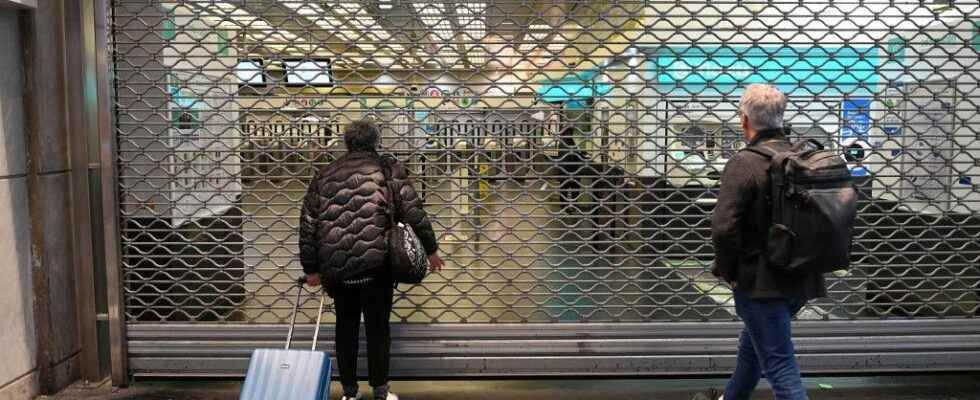A Thursday of strikes and demonstrations, of “galley” is announced for the users. Two days before the start of the mobilization against the pension reform, the veil has been lifted on the extent of the disruption expected in several key sectors, first and foremost transport and education.
Primary schools
“School closed on January 19”: in Marseille as elsewhere, signs began to appear on the gates. “The whole teaching team will be on strike,” said one of them. Proof that the pension reform, which aims to raise the legal retirement age from 62 to 64, “is a major concern” for teachers, according to Guislaine David, general secretary of Snuipp-FSU, the first primary union. About 70% of strikers are expected in kindergartens and elementary schools.
The discontent of teachers, sharpened by the opening of negotiations on Wednesday on salary increases in Education, should not spare colleges and high schools either. Blockages of establishments by high school students are also to be expected.
Trains, RER and metros
The RATP announced very disrupted traffic Thursday on the RER and metro networks, with three lines interrupted (8, 10, 11) and ten others “partially exploited” or only operating during rush hour. There will only be one train out of 2 during peak hours for the RER A and 1 train out of 4 during off-peak hours, with an end of service around 9 p.m. Only 1 out of 2 trains will run during peak hours on the southern part of the RER B operated by the RATP, and 2 out of 3 buses will run in Paris and in the inner suburbs.
Train traffic will be “very severely disrupted” on Thursday, in particular for regional trains – TER and Transilien – and a little less for TGVs, SNCF Voyageurs announced on Tuesday. The company plans 1 out of 3 TGV on the North axis, 1 out of 4 on the East, 1 out of 5 on the Atlantic, 1 out of 3 on the South-East and 1 out of 3 for Ouigo but only 1 TER out of 10 in medium.
“It will be a hard Thursday, (…) strong disruptions”, had anticipated on Tuesday morning the Minister Delegate in charge of Transport Clément Beaune, inviting to “telework when possible”. The Parisian transport unions are all the more upset that the government wants to abolish, in the long term, their special pension scheme, as it has already done for railway workers.
Aviation sector
The disruptions will not spare the aviation sector. Due to a strike by air traffic controllers, the Directorate General of Civil Aviation (DGAC) asked companies to preventively cancel one in five flights at Orly on Thursday.
Energy sector
The scenario of a renewable movement is taking shape in the energy sector where “drops in electricity production” are to be expected, warned the leader of the FNME-CGT Sébastien Menesplier, referring to possible “cuts” targeting the elected “who support the reform”.
A ramp-up is also looming in refineries, with 24-hour notice on Thursday, then 48 hours next week and 72 hours in early February. At the TotalEnergies depot in Dunkirk “the employees are very upset” against the reform, says CGT secretary Benjamin Salvino, who is counting on activity almost at a standstill on Thursday, but without immediate consequences in service stations. Slightly more shortages than usual were however observed at the start of the week, a sign of a possible fear of running out among some motorists.
The Minister of Labor Olivier Dussopt hoped that the mobilization “does not result in a blockage of the country”. Comments made on public broadcasting whose programs should be largely disrupted on Thursday.
